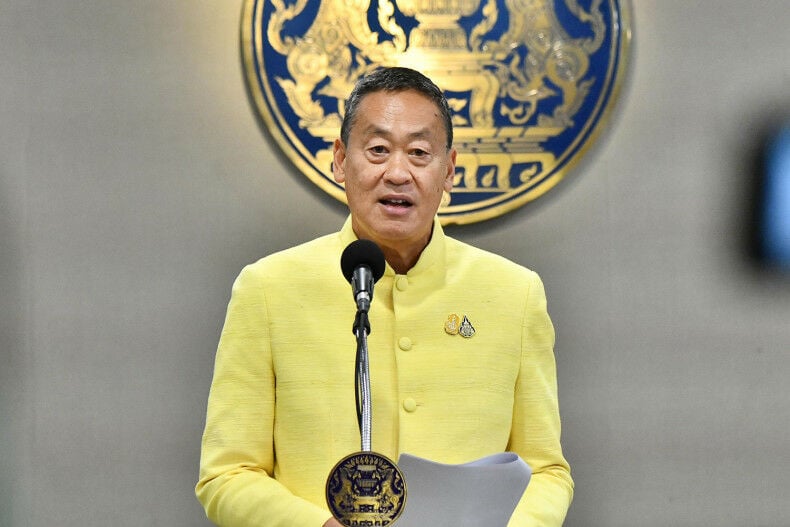Political turmoil sends Thai stock market plummeting

Prime Minister Srettha Thavisin acknowledged that Thailand’s current political turmoil is likely behind the recent stock market plunge, which hit a four-year low on Monday.
Analysts have pointed to three high-profile court cases shaking the nation’s political landscape as the primary cause of investor anxiety.
“It is about stock market sentiment.”
PM Srettha highlighted that he, among others involved in these cases, must now defend themselves in court.
Last Friday, the 62 year old Thai prime minister submitted his defence to the Constitutional Court regarding the controversial appointment of Pichit Chuenban as a PM’s Office minister. Forty caretaker senators have questioned if both men should be ousted under Section 170 of the constitution, which pertains to the ethics of Cabinet ministers.
Pichit, who was previously jailed for six months in 2008 for attempting to bribe Supreme Court judges, resigned shortly after his recent appointment. Meanwhile, the Constitutional Court is set to review a dissolution case against the opposition Move Forward Party today.
Adding to the political drama, former Prime Minister Thaksin Shinawatra is scheduled to appear before the attorney general on June 18 for the initiation of his lese-majeste indictment. This stems from an interview he gave to a Korean newspaper in February 2015, for which his lawyers claim investigators faced military intimidation.
The political instability has caused Thai stocks to nosedive, with the Stock Exchange of Thailand (SET) Index falling to 1,313.26 points by midday Monday, its lowest since March 2020.
InnovestX Securities warned of ongoing volatility due to the court cases, while foreign investors have already sold 93 billion baht worth of Thai shares this year. Sittichai Duangrattanachaya, a senior global equity strategist, cautioned that political uncertainties could hinder government policy implementation needed to boost the economy.
Sanan Angubolkul, chairman of the Thai Chamber of Commerce, attributed the market slump to a combination of political instability, sluggish economic recovery, and high household debt, all of which have eroded investor confidence, reported Bangkok Post.
Latest Thailand News
Follow The Thaiger on Google News:


























